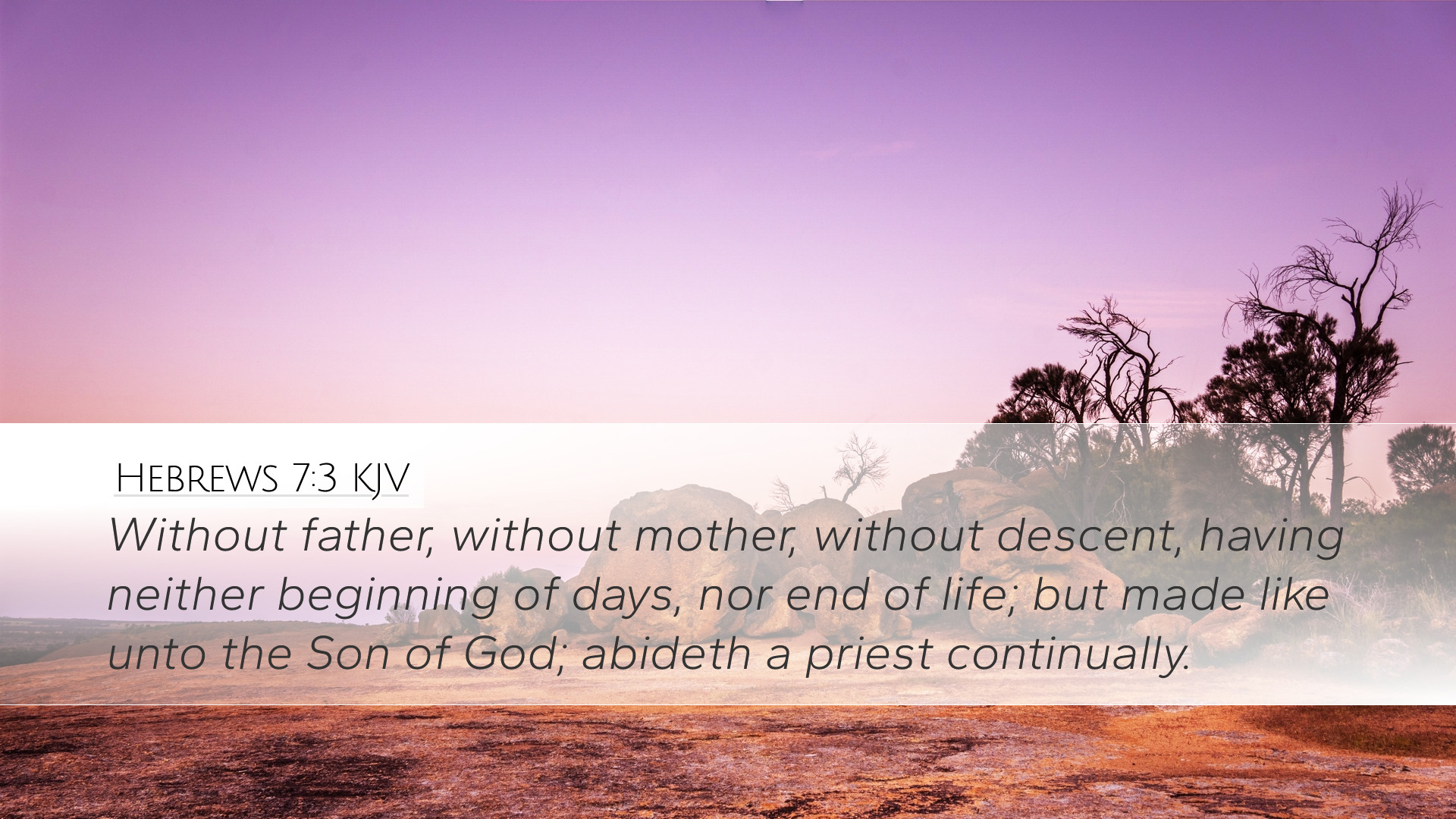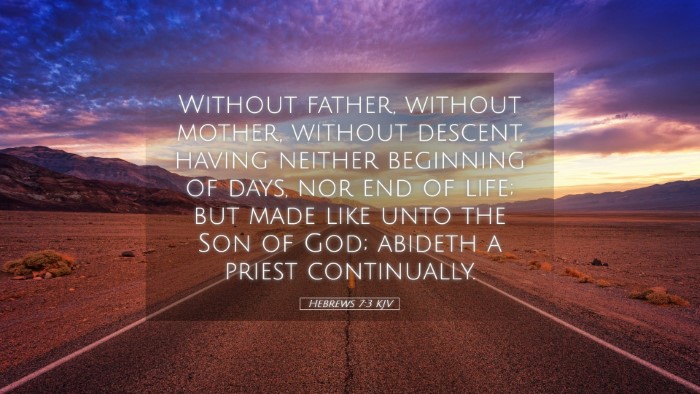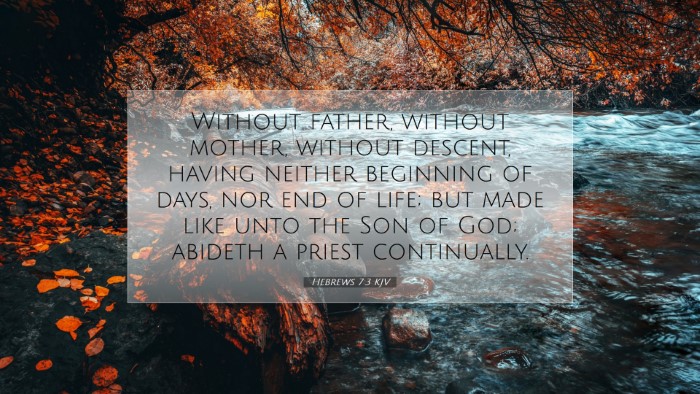Commentary on Hebrews 7:3
Hebrews 7:3 states, "Without father, without mother, without descent, having neither beginning of days, nor end of life; but made like unto the Son of God; abideth a priest continually." This verse refers to Melchizedek, a unique figure in biblical history, whose characteristics are celebrated for their typological significance concerning Christ. The interpretations and implications of this verse are profound, affecting various theological discussions.
Historical Context
The Book of Hebrews was written to a primarily Jewish audience who were familiar with the Old Testament, particularly the accounts of sacrifices and the priesthood. The author presents Melchizedek as a figure who transcends the traditional Levitical priesthood, which is a crucial argument for the superiority of Christ's priesthood.
Insights from Matthew Henry
Matthew Henry emphasizes the mysterious nature of Melchizedek, stating that he is an astonishing figure whose genealogy is not disclosed. He notes that Melchizedek serves not in the traditional priestly manner but appears as a king-priest, representing a higher order of ministry.
- No Known Heritage: Henry observes that Melchizedek's lack of a recorded lineage highlights his divine appointment and the concept that God can choose leaders and ministers outside of human lineage.
- Timelessness: He interprets "without beginning of days, nor end of life" as a representation of Christ's eternal nature, suggesting that Melchizedek serves as a type pointing to the eternality and unchanging priesthood of Jesus.
- Continual Priesthood: Henry articulates that Melchizedek's priesthood, unlike the Levitical priests, is established as everlasting, paralleling the priesthood of Christ in its perpetual efficacy.
Insights from Albert Barnes
Albert Barnes, in his commentary, provides a thorough examination of the theological dimensions of this verse. He notes that Melchizedek’s priesthood signifies an order that surpasses the Levitical system:
- Symbolism of Melchizedek: Barnes argues that Melchizedek is a type of Christ, serving to illustrate the spiritual truths of Christ’s role as mediator between God and humanity.
- Priestly Unity: He highlights the unity of Christ’s priesthood as a key theme, noting the idea that through Christ, all believers are partakers in a high priestly identity that is new and accessible.
- No Recorded Death: Barnes suggests that the absence of death in Melchizedek's account symbolizes the everlasting nature of Christ’s sacrifice, which ascribes to believers a continual access to God.
Insights from Adam Clarke
Adam Clarke brings forth a more critical examination of the text, emphasizing it as a theological assertion regarding the nature of holiness and priestly authority:
- Unbroken Lineage: Clarke posits that the statement "without father, without mother" illustrates the divine uniqueness of the priesthood; it is untainted by human sin and limitation.
- Foreshadowing Christ: He explores how this verse foreshadows Christ’s role as the ultimate High Priest, indicating a priesthood founded upon divine appointment rather than hereditary succession.
- Mystery of Priesthood: Clarke invites readers to consider the mystery surrounding Melchizedek, suggesting that this mystery invites deeper contemplation on God’s choice and sovereignty in appointing leaders for His people.
Theological Implications
The implications of Hebrews 7:3 extend beyond the historical context of Melchizedek, influencing significant theological discussions:
- Christology: The text emphasizes Christ's eternal nature and his role as the ultimate priest, which is vital in understanding salvation.
- Ecclesiology: The comparison to the Levitical priesthood speaks to the nature of the Church, suggesting that all believers are part of a new covenant community under the priesthood of Christ.
- Spiritual Legacy: Melchizedek's priesthood serves as a reminder to the Church of the importance of spiritual heritage rooted in faith rather than mere tradition.
Conclusion
The examination of Hebrews 7:3 reveals a multi-faceted interpretation of Melchizedek's role as a priest and king. The insights gleaned from Matthew Henry, Albert Barnes, and Adam Clarke underscore the incredible depth of this passage, emphasizing both its historical significance and its theological relevance for understanding Christ's unchanging priesthood. For pastors, students, and scholars alike, this verse serves as a profound reminder of the divine ordination of God's servants and the eternal nature of Christ's redemptive work.


